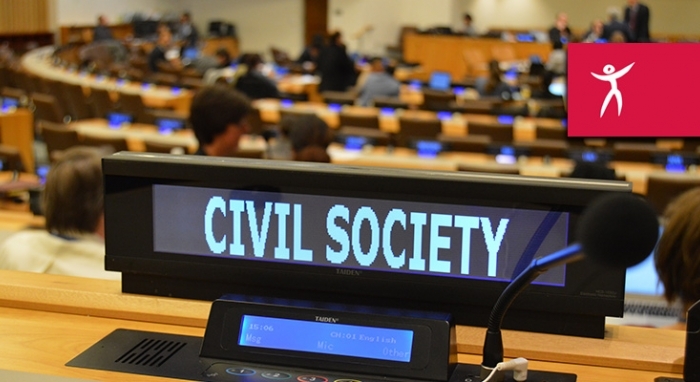ISHR / Civil Society, NGO Committee

ECOSOC may act unlawfully if it accepts NGO Committee recommendations
The Economic and Social Council (ECOSOC) may act unlawfully if it accepts NGO Committee recommendations related to the accreditation of a group of Turkish NGOs and NGOs until recently based in Turkey. ECOSOC will consider these recommendations during its Coordination and Management Meeting on Wednesday morning, New York time.
In January the NGO Committee voted to make a recommendation to reject accreditation applications of and withdraw accreditation from a group of Turkish NGOs and NGOs until recently based in Turkey. Turkey urged the NGO Committee to act on the basis that these organisations had been deregistered in Turkey and therefore – in Turkey’s opinion – no longer existed. This despite at least two of the NGOs with accreditation being registered in other jurisdictions. In violation of its own procedures, the NGO Committee then decided not to inform these NGOs of the intention to reject their applications or withdraw their accreditation; nor did they provide them with the right to reply. Several NGOs including ISHR, expressed grave concern at the NGO Committee’s failure to respect due process.
The NGO Committee considers NGO accreditation applications and withdrawals. Accreditation provides NGOs with a range of access and participation privileges that are most fully enjoyed at the Human Rights Council. The NGO Committee makes recommendations to its parent body ECOSOC, which makes final decisions. On Wednesday morning in New York, ECOSOC will consider recommendations made as part of the report provided to it by the Committee.
‘We urge ECOSOC members to examine the basis on which the NGO Committee has recommended the rejection of applications and the withdrawal of accreditation in these cases,’ said ISHR’s Eleanor Openshaw. ‘ECOSOC members must ensure its practices and those of its subsidiary bodies are consistent with international human rights standards.’
‘We call on ECOSOC to reject recommendations that are inconsistent with or fail to comply with international human rights standards,’ she added.
Following the NGO Committee session in January, ISHR sought legal opinion on whether registration at the national level is a factor in gaining ECOSOC accreditation or in the withdrawal of that accreditation. ISHR was concerned that registration was being considered a prerequisite for accreditation, when ECOSOC resolution 1996/31 – which establishes the NGO Committee’s mandate – only requires an applicant to ‘attest that is has been in existence for at least two years’.
The legal opinion, provided by Freshfields Bruckhaus Deringer, offers the following key conclusions:
Applying for accreditation:
An NGO only needs to establish ‘existence’ in one State. That State does not necessarily have to be the State where the NGO is headquartered or where it carries out its operations.
Demonstrating ‘existence’ does not necessarily require registration. Showing legal personality is a common means to demonstrate existence. However, as ECOSOC resolution 1996/31 does not say NGOs need to exist in law (rather, it says they simply need to exist), where an NGO doesn’t have domestic legal personality, there may be circumstances where they could still demonstrate ‘existence’.
Where an NGO satisfies requirements of showing ‘existence’, any recommendation by the NGO Committee to reject an accreditation application because it lacks registration would breach standards of international human rights law, as would any decision by ECOSOC to accept such a recommendation.
Where a State has denied an NGO’s domestic registration in a manner incompatible with international human rights standards, any recommendation by the NGO Committee to reject an accreditation application for lack of registration would breach standards of international human rights law, as would any decision by ECOSOC to accept such a recommendation.
Withdrawal of accreditation:
A State’s decision to withdraw an NGO’s registration under domestic law should not automatically disentitle the NGO from retaining consultative status.
Accreditation can only be withdrawn on the basis that the NGO no longer meets the principles governing consultative status in ECOSOC resolution 1996/31. The NGO Committee periodically reviews the activities of NGOs on the basis of information it receives, including the NGO’s quadrennial report. On that basis the NGO Committee ‘may recommend’ suspension or withdrawal of accreditation, but will need to exercise discretion in a manner compatible with standards of international human rights law.
Legal framework:
ECOSOC and the NGO Committee are legally obliged to exercise their functions consistently with international human rights standards that include the rights to due process, non-discrimination, and the fundamental freedoms of expression, association and assembly. These standards apply in the interpretation and application of ECOSOC Resolution 1996/31, and in the NGO Committee developing and applying its own procedures and practices and making recommendations in relation to NGO consultative status.
ECOSOC is similarly bound to consider and act compatibly with international human rights standards. This includes a legal obligation to reject recommendations made in manner inconsistent with, or that do not comply with, international human rights standards.
Practices of the NGO Committee and decisions of ECOSOC that fail to comply with international human rights standards do not have any precedential force.
